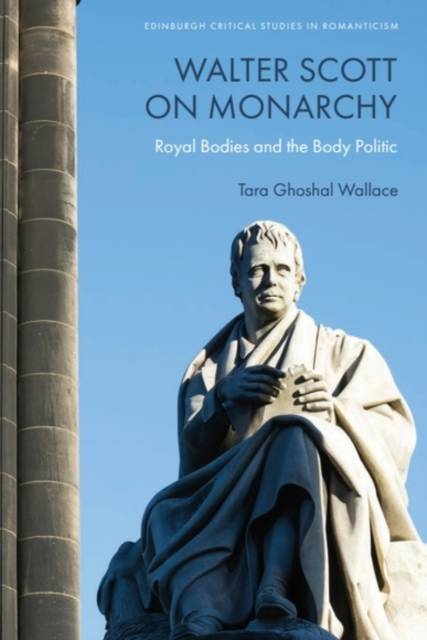
- Afhalen na 1 uur in een winkel met voorraad
- Gratis thuislevering in België vanaf € 30
- Ruim aanbod met 7 miljoen producten
- Afhalen na 1 uur in een winkel met voorraad
- Gratis thuislevering in België vanaf € 30
- Ruim aanbod met 7 miljoen producten
Zoeken
€ 193,45
+ 386 punten
Uitvoering
Omschrijving
This book situates Walter Scott's novels on monarchy within both their historical contexts and biopolitical theory, particularly regarding the King's Two Bodies, a notion that, according to Ernst H. Kantorowicz, raises 'the spectre of an absolutism. . .in an abstract physiological fiction.' It attends to Scott's careful calibration of the historical record behind each novel while noting that his reflections on the seismic shifts caused by the French Revolution and the Napoleonic era - culminating in The Life of Napoleon Buonaparte (1827) - informs his representations of monarchy in the novels. While each novel's consideration of the rights and limitations of royal prerogatives is deeply grounded in its own historical context, Scott's fiction and the Life demonstrate keen awareness of the nineteenth-century shift to what Michel Foucault calls 'governmentality' - that is, the sovereign power's project to control and protect subjects, often through surveillance, policing, and the strategic exercise of mercy.
Specificaties
Betrokkenen
- Auteur(s):
- Uitgeverij:
Inhoud
- Aantal bladzijden:
- 256
- Taal:
- Engels
- Reeks:
Eigenschappen
- Productcode (EAN):
- 9781399535816
- Verschijningsdatum:
- 31/03/2025
- Uitvoering:
- Hardcover
- Formaat:
- Genaaid
- Afmetingen:
- 156 mm x 234 mm
- Gewicht:
- 539 g

Alleen bij Standaard Boekhandel
+ 386 punten op je klantenkaart van Standaard Boekhandel
Beoordelingen
We publiceren alleen reviews die voldoen aan de voorwaarden voor reviews. Bekijk onze voorwaarden voor reviews.








